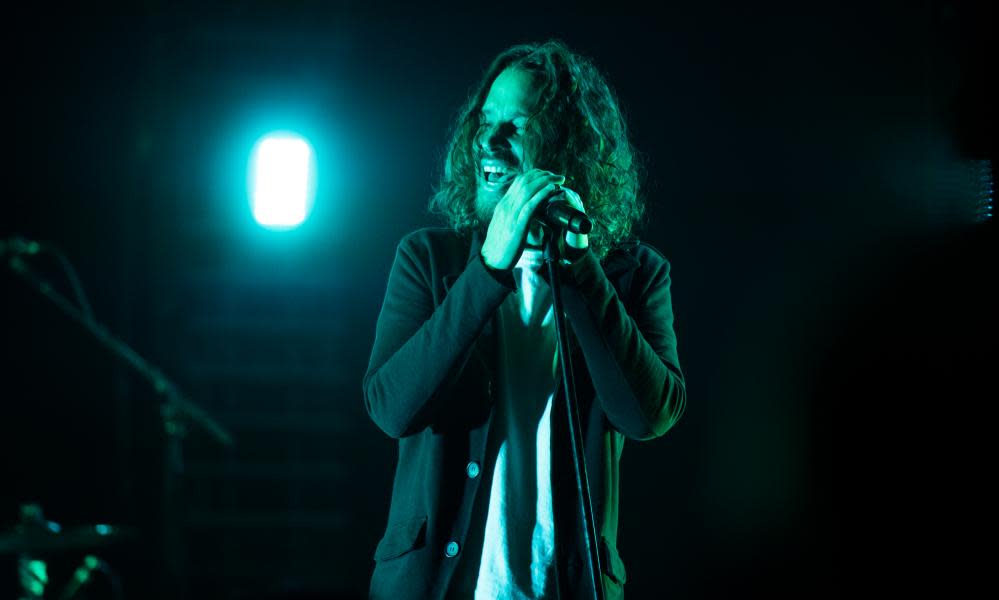In these black days, I've finally come round to nostalgia | Brigid Delaney's diary

The death of a rock star, years after their prime can have a curious effect of opening a portal and sending you tumbling back into a time when they were your band.
The radio stations start playing all their songs, and on social media people post clips – and suddenly you are back there remembering all the words and the years that surrounded them.
Novelist Michael Chabon wrote recently in the New Yorker on nostalgia: “Nostalgia is a valid, honourable, ancient human emotion, so nuanced that its sub-variants have names in other languages – German’s sehnsucht, Portuegese’s saudade – that are generally held to be untranslatable.”
One strain of it surely must be when the rock stars of your youth die. On hearing the news, you binge and bury yourself in their music, and time – 10, 20, 30 years - seems to collapse. You are back there.
I woke up in Rome last week to the news of Soundgarden singer Chris Cornell’s death. I was staying in the apartment of a friend from college and we were both sad on hearing the news. Our college days were the 1990s. Soundgarden, Pearl Jam, Alice in Chains, Smashing Pumpkins, Nirvana, Hole, Stone Temple Pilots and British indie bands such as Ride played loudly at parties and from the stereos in our rooms. We saved up for the concerts and emerged exhilarated from moshpits.
That morning in Rome, more than 20 years later, we streamed radio from Triple J, who were doing a Soundgarden tribute, and sang all the words and did air guitar and jumped around and all that, counting off the casualties of the music of that time: Kurt Cobain – suicide in 1994, Alice in Chains singer Layne Staley and bassist Mike Starr each died of drug-related causes, in 2002 and 2011, Stone Temple Pilots frontman Scott Weiland died of an overdose on his tour bus in 2015.
You can draw a very definite line between the 1990s and the decade that was to follow
The sun was beating hot on the terrace outside, and we could hear the church bells peel from a nearby square and there were cappuccinos to be had elsewhere– yet the lure of the darkened lounge and Black Hole Sun and disappearing down that portal of nostalgia – back to the 1990s was too strong.
“They were the last innocent times,” said my friend. And although no times are ever innocent, I understood what he meant.
They were the times you could go to a big concert and not worry about a terrorist putting a bomb in the foyer, or storming the venue with guns and explosives. The injuries at concerts were self-inflicted; mostly cuts and bruises in the moshpit.
The 1990s were the era of Clinton – and the blowjob in the White House. In Australia it was Paul Keating up until 1996 – and if you were a non-home owning student, you were protected from high interest rates and economic malaise – and instead thrilled at his devastating one-liners in question time, his oratory and ideas. The long Howard years and the accompanying cultural and geopolitical shift to the right were yet to come. Globally there were wars and conflicts and unrest. But you can draw a line – a very definite line between that decade and the one that was to follow. September 11 2001 changed everything.
The internet also changed everything. In the 1990s there was still a sense of communal engagement. Everyone consumed the same news and there was a baseline shared understanding of “the facts.” Certain television shows were watched by everyone – not on devices but on screens designed to be shared. In 1990 one third of Americans with their televisions on at the time watched the pilot episode of Twin Peaks. That is extraordinary, when you think about it.
Growing up, I hated how baby boomer nostalgia hijacked popular culture. How could anything new breathe under the weight of all the films and music being pumped out that didn’t speak to our present moment?
The Big Chill, Forrest Gump, Stand by Me, Platoon, Good Morning Vietnam, Back to the Future (to a lesser extent) – all riffed off an imagined glorious past where the music was better and the times more exciting.
A big part of these films were their soundtracks – the implication being, that the best music was behind us.
But then – of course – came bands like Soundgarden and Britpop, and in Australia a thriving pub rock and touring scene – and looking back, it’s hard not to see the 1990s in its own golden light.
While news of Twin Peaks return is looking set to be one of the defining cultural moments of 2017, I would hate to see the 1990s resurrected to such an extent that new music struggles to get heard. Already 1990s bands are finding lucrative second lives on the touring circuit – with bands like Pavement, Dinosaur Jnr, Slater Kinney, De La Soul and the Pixies often making more money this time round than they did in their heyday.
You can see the appeal, I guess. Nostalgia and the music of your youth are like a warm bath. Who’d want to get out, particularly when the present feels like black days.

 Yahoo News
Yahoo News 
